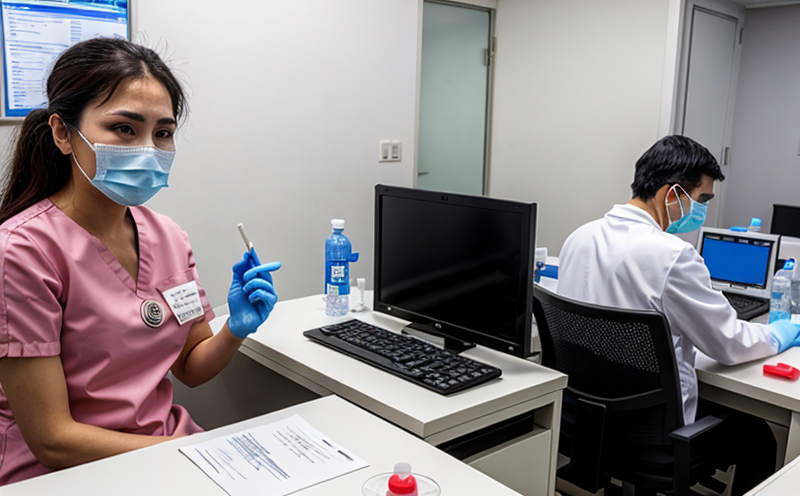Foot-and-Mouth Disease Virus Serological Testing in Livestock
The foot-and-mouth disease virus (FMDV) is a highly contagious pathogen that affects cloven-hoofed animals such as cattle, pigs, sheep, and goats. Its rapid spread can cause significant economic losses due to decreased milk production, meat quality, and labor disruptions in the agricultural sector. Serological testing plays a crucial role in monitoring and controlling FMDV infections by detecting the presence of antibodies against the virus in the blood serum.
Serological tests are often used alongside other diagnostic methods like virological assays to provide comprehensive surveillance and control strategies for foot-and-mouth disease (FMD). In livestock, serology can help identify infected animals early, monitor the effectiveness of vaccination programs, and assess herd immunity. This service is essential in preventing outbreaks and ensuring biosecurity within farms and slaughterhouses.
Our laboratory employs advanced techniques such as enzyme-linked immunosorbent assays (ELISAs) and indirect hemagglutination tests (IHA) to detect FMDV antibodies. These methods are based on international standards including ISO 15189, which ensures the highest level of quality assurance in our diagnostic processes. The use of standardized protocols guarantees accurate results that meet global regulatory requirements.
The testing process involves several key steps: sample collection from live animals or post-mortem tissues, preparation of serum samples according to specific guidelines, and subsequent analysis using validated assay technologies. Proper sample handling is critical for obtaining reliable test outcomes; therefore, our team adheres strictly to best practices recommended by organizations like the World Organization for Animal Health (OIE).
Our laboratory also provides comprehensive support services including training workshops on proper sampling techniques and interpretation of results. By offering these resources, we aim to empower stakeholders in the agricultural industry with knowledge that supports effective decision-making related to FMD management.
Why It Matters
Effective monitoring and control of foot-and-mouth disease through serological testing are vital for maintaining public health, animal welfare, and economic stability in the agricultural sector. Early detection allows prompt intervention measures to be implemented before widespread infection occurs, reducing the risk of costly losses associated with production disruptions.
The importance of accurate diagnostics cannot be overstated when addressing zoonotic diseases like FMDV. Timely identification enables targeted treatments and prevention strategies aimed at minimizing suffering among infected animals while protecting human health from potential cross-species transmission risks.
Moreover, compliance with international standards ensures that our clients meet stringent regulatory expectations set forth by organizations such as the World Organization for Animal Health (OIE) and European Union regulations. This alignment helps maintain trade relationships and supports sustainable development goals within the livestock industry.
Industry Applications
- Veterinary diagnostic laboratories
- Government agencies responsible for animal health surveillance
- Animal husbandry enterprises engaged in large-scale livestock production
- Slaughterhouses processing meat products derived from cloven-hoofed animals
Use Cases and Application Examples
In practice, foot-and-mouth disease virus serological testing serves multiple purposes across different stakeholders:
- Veterinary diagnostic laboratories: Conduct routine surveillance programs to monitor the prevalence of FMDV antibodies within populations.
- Government agencies: Implement control measures following outbreaks, ensuring rapid response and containment efforts are effective.
- Livestock producers: Monitor herd health status regularly to identify potential issues early on, enhancing overall herd management practices.
- Slaughterhouses: Verify the absence of FMDV antibodies prior to processing meat products, safeguarding both consumer safety and international trade interests.





